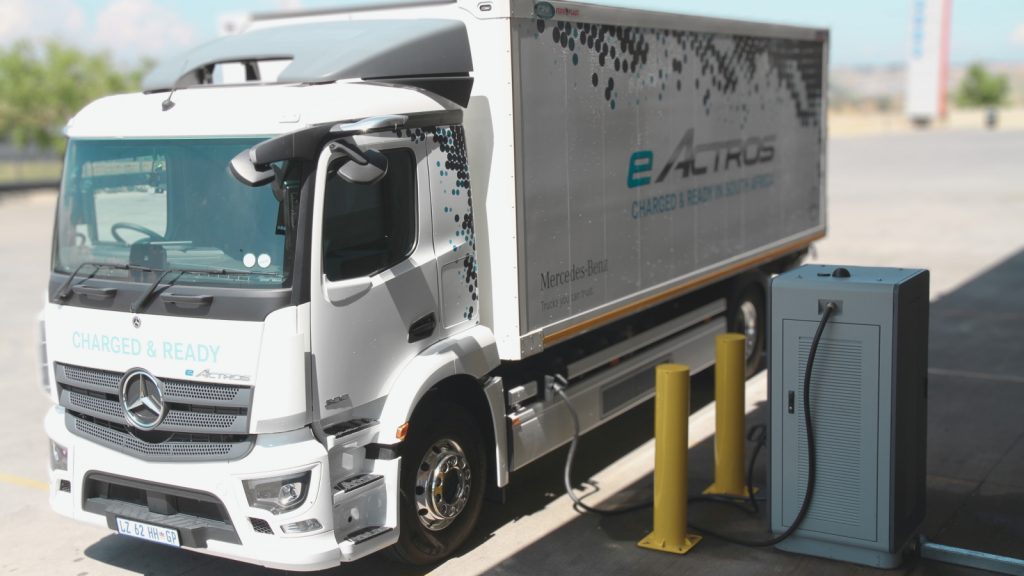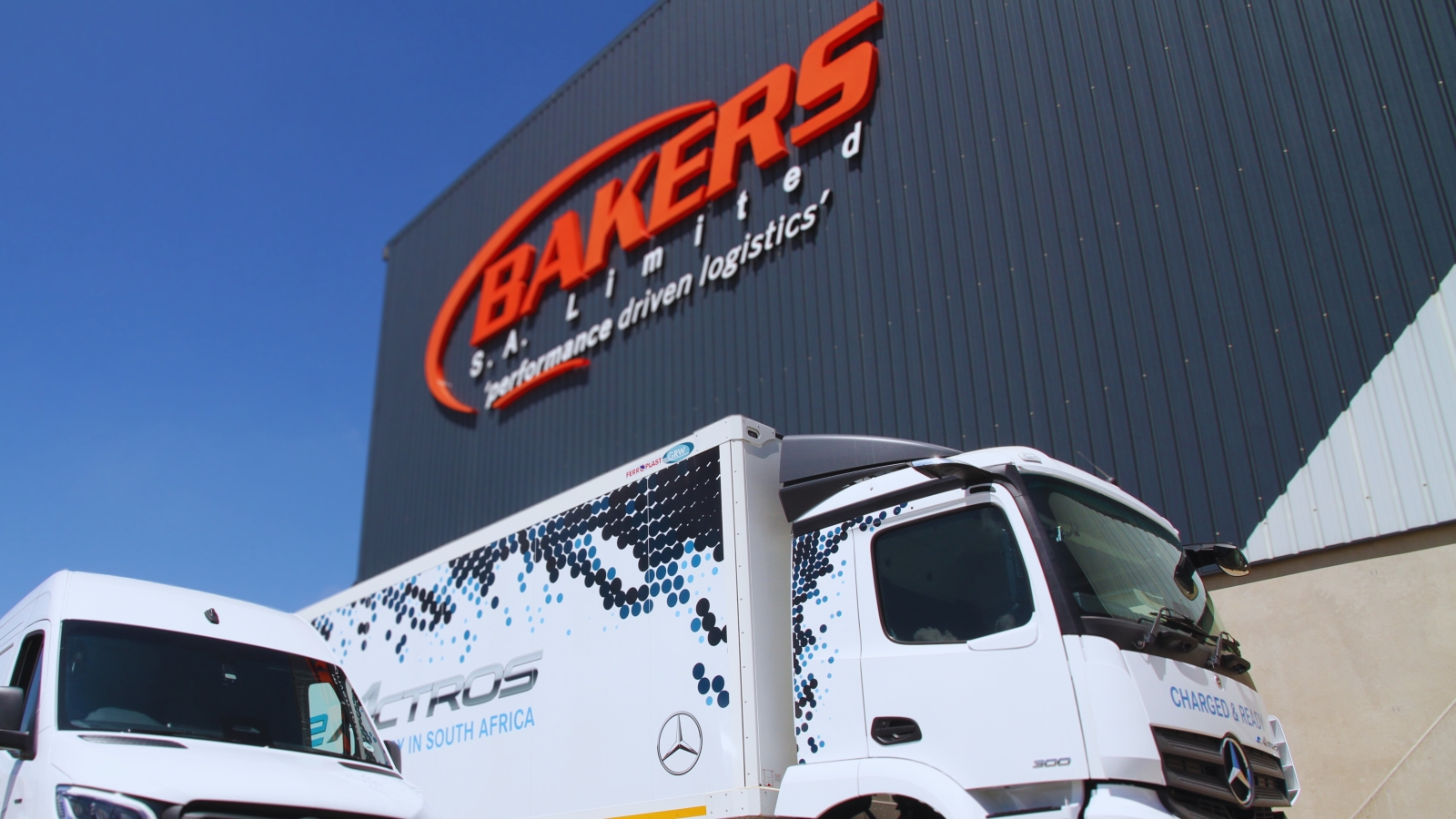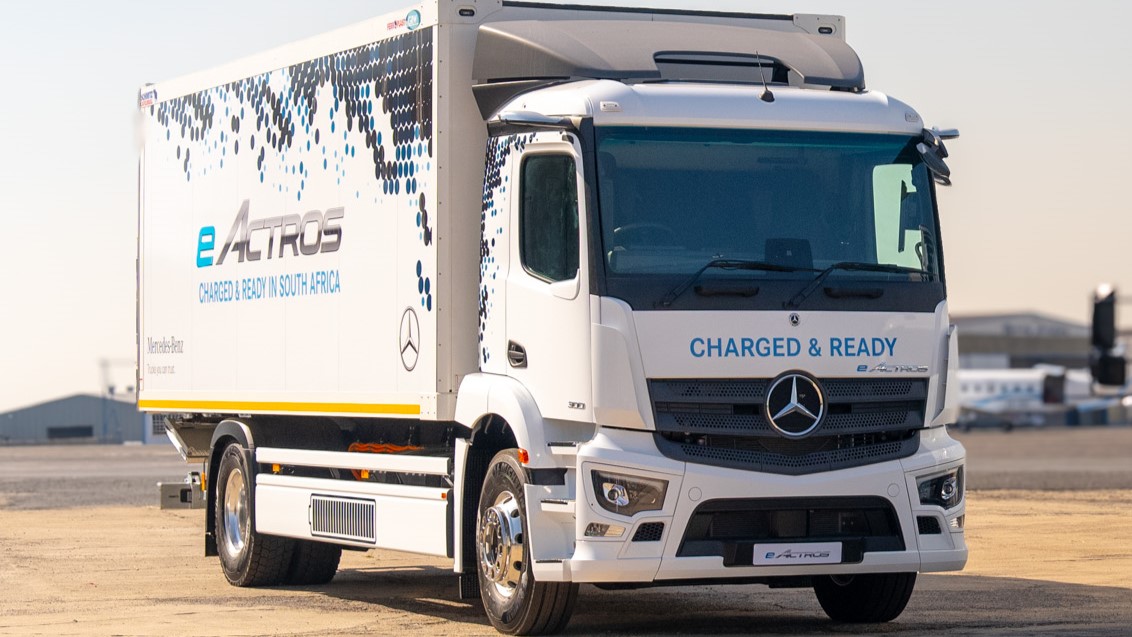With powerful hardware working together with an industry-leading camera system and intuitive AI experiences, everyday tasks have never been easier and faster
eActros 300 and Zimi Charge creates EV win for Bakers

eActros 300 is an EV truck that can potentially move most of what South Africans need more efficiently. But how much cheaper is it to operate than diesel?
There’s a lot of metaphorical noise about EVs in South Africa, but what’s the real-world benefit for a commercial fleet? Because that’s what matters to decarbonization, doesn’t it?
A few passenger car BEVs sold to wealthy owners who live in security estates isn’t going to make a meaningful fleet average emissions impact, across South Africa. What matters is powering more of the South African logistics fleet with electrons instead of complex diesel hydrocarbons.

eActros 300 goes operational
Very few commercial fleets operate EVs in South Africa, but Bakers is one of them. Its fleet numbers more than 600 and includes a Mercedes-Benz eActros 300, powered by three sizeable lithium-ion chemistry batteries.
Bakers have been using the eActros for commercial operations. With the help of Stellenbosch charging tech experts, Zimi, this truck has created data on how much more efficiently it can operate than a diesel powertrain truck.
The eActros 300 has a body and payload rating of 8.2- and 16.1t, and configured as a traditional box truck, it operates close-range urban and peri-urban logistics. With a total installed energy density of 336kWh, the estimated range is 330km (depending on topography and headwinds).
Bakers has discovered that its eActros 300 is terrifically more efficient than an equivalent turbodiesel truck without sacrificing performance. The powertrain is rated for 330kW of continuous output, which can peak at 400kW, to keep a steady cruising speed and traffic harmony up steep hills and inclines.
Unlike most EVs, these trucks have a drivetrain with two-speed gearing. First gear leverages the EV powertrain’s instantaneous torque, creating much smoother pull-aways on inclines when fully laden. The second gear adds mid-speed efficiency.

It makes all the cents
The benefits of an EV truck like the eActros 300 are manifold. It’s much easier to drive when fully laden, up steep urban roads to delivery zones, because of the battery powertrain’s instant torque delivery and integrated two-speed transmission.
It’s also much quieter during dwell times, in collection or delivery zones, because there’s no diesel clatter from an idling engine. This is a real benefit for early morning and nighttime logistics operations in urban zones and CBDs. How? EV trucks can fulfil supply chain commitments without creating noise annoyance for residents or hotel and Air B&B guests.
But what about the cost factor? Bakers has been tracking the data on its energy spend with the Mercedes-Benz eActros 300 trucks, compared to diesel. Using locally sourced Zimi Charge hardware and Zeus (the associated software application developed by Zimi), Bakers has excellent data clarity and insights to its EV truck’s energy use and operational profile.
Using Zimi’s 120kW DC charger to ensure rapid recharging and turnaround times, the Bakers EV truck is running at a 70% energy spend saving compared to fuelling with diesel. In the commercial fleet world, efficiency gains, cost savings and optimization are often a question of low single-digit percentages. A 70% saving is immense.
The Bakers experience, powered by Zimi charging infrastructure and data analytics, proves that the upfront input cost for an EV can unlock dramatically lower energy and operational costs over the truck’s usable lifetime.


